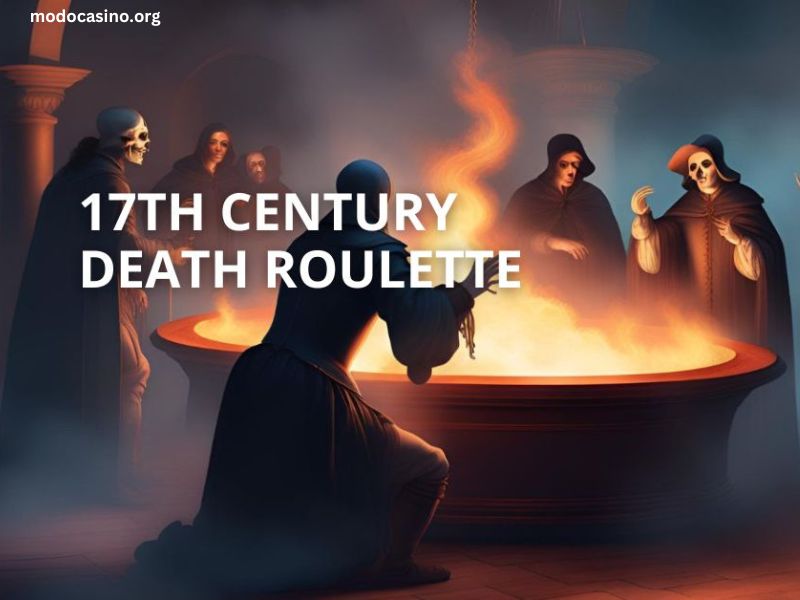The 17th century was a period marked by tremendous upheaval and transformation across Europe. It was an era of religious strife, political upheaval, and significant advances in science and philosophy. Amidst this backdrop of change, a rather macabre and lesser-known phenomenon emerged: the Death Roulette. This grim practice, characterized by its combination of chance and fatal consequence, provides a unique lens through which to view the social and cultural anxieties of the time.
Origins and Context
The concept of Death Roulette can be traced back to the turbulent socio-political climate of 17th-century Europe. This period was rife with conflict and instability. The Thirty Years’ War (1618-1648), which ravaged much of the continent, and the English Civil War (1642-1651) were just two examples of the widespread violence and uncertainty of the era. Such conflicts fostered a sense of fatalism and despair, which, in turn, influenced various aspects of society, including entertainment and social rituals.
Death Roulette, as an organized game or ritual, did not exist in the same way that contemporary games of chance do. Instead, it manifested in various forms, reflecting the era’s fascination with fate and mortality. One notable manifestation of this phenomenon was the use of roulette-like games in the context of criminal justice and punishment.
The Mechanics of Death Roulette
The mechanics of Death Roulette in the 17th century were rather grisly. It was often associated with the judicial practices of the time, particularly in regions where capital punishment was prevalent. In some cases, the game involved the random selection of individuals for execution. This could be done through a literal roulette wheel or, more commonly, through the drawing of lots. The randomness of the selection process was intended to create a sense of impartiality and fairness, though it often resulted in a more arbitrary and brutal form of justice.
In other instances, Death Roulette was a feature of gambling and entertainment. While less common, there were reports of individuals betting on the outcomes of dangerous and life-threatening situations. These bets could involve anything from the outcome of a duel to the likelihood of survival in hazardous conditions. The underlying principle was the same: to gamble with one’s life or the lives of others, driven by the thrill of chance and the ever-present shadow of death.
Social and Cultural Implications
The practice of Death Roulette reflected deeper social and cultural anxieties of the 17th century. The era was marked by profound existential uncertainty, as evidenced by the frequent wars, plagues, and political instability. This pervasive sense of instability is mirrored in the random and often brutal nature of Death Roulette. It underscores the period’s preoccupation with fate, chance, and the inevitability of death.
Moreover, Death Roulette can be seen as a form of social commentary on the value of human life and the arbitrariness of justice. By reducing life and death to a game of chance, it highlights the dehumanizing aspects of judicial and societal systems that were often marked by cruelty and unpredictability. This reflection of the era’s values and anxieties can also be observed in other cultural artifacts of the time, such as literature, art, and theater.
Death Roulette in Popular Culture
Although Death Roulette itself was not a widespread or institutionalized practice, it has been referenced and explored in various forms of popular culture. The fascination with roulette-like games of chance and their fatal consequences can be seen in literature, theater, and even modern media. Works such as the plays of Shakespeare and the writings of the period often grapple with themes of fate, chance, and mortality, reflecting the broader cultural preoccupations of the time.
In contemporary times, Death Roulette has been referenced in various forms of media and entertainment. Films, television shows, and literature that explore themes of chance and mortality often draw on historical precedents like Death Roulette to create compelling narratives. This ongoing fascination with the concept underscores its enduring impact on our collective imagination and its role as a metaphor for the randomness of fate and the fragility of human life.
Legacy and Reflection
The legacy of Death Roulette serves as a stark reminder of the ways in which historical contexts shape our understanding of justice, fate, and human mortality. It highlights the dark undercurrents of an era marked by profound social and political upheaval, offering insights into the fears and anxieties that drove people to engage in such grim practices.
In reflecting on Death Roulette, it is essential to consider the broader historical and cultural contexts in which it emerged. The 17th century was a time of significant change and uncertainty, and the practice of Death Roulette, though macabre, provides a unique window into the values and preoccupations of the time. It serves as a testament to the ways in which humans have historically grappled with the concepts of fate and mortality, and it continues to inspire contemplation and discussion in contemporary times.
The study of Death Roulette also underscores the importance of historical awareness in understanding contemporary issues related to justice, chance, and human behavior. By examining the practices and beliefs of the past, we gain valuable insights into the ways in which our own societies grapple with similar themes and challenges.
Conclusion
The Death Roulette of the 17th century, though a grim and unsettling aspect of history, offers a compelling lens through which to explore the cultural and social anxieties of the time. It reflects the era’s preoccupations with fate, chance, and mortality, and its legacy continues to resonate in contemporary discussions about justice, chance, and the human condition.




